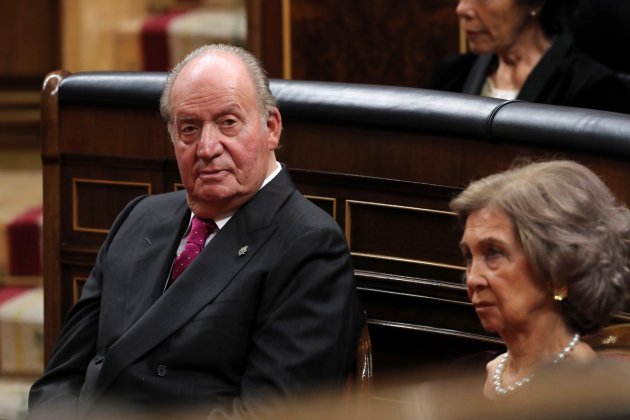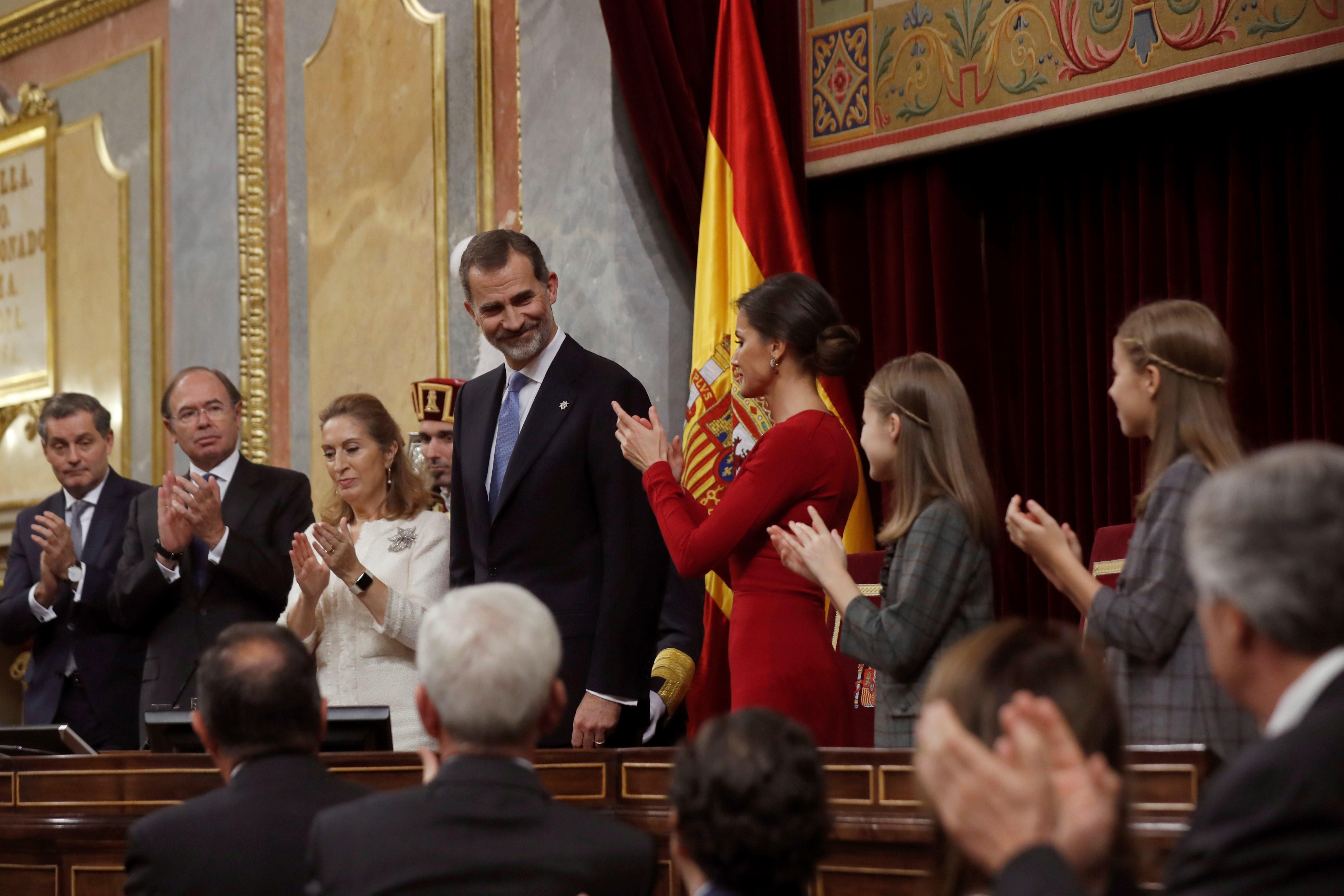King Felipe VI has maintained his confrontational tone with the Catalan independence movement in his speech for the 40th anniversary of the Spanish Constitution in the Congress today. In a solemn ceremony, also attended by the fathers of the Constitution, the current Spanish prime minister and his living predecessors and the king's parents, the king and queen emeritus, the monarch made it clear that it's the Constitution that sets the rules of the game. At no moment did he give the slightest opening to conversations about potential constitutional reform.
The king said there needs to be willingness from everyone to understand each other, but insisted that this happen with respect for the law, without any type of imposition. The monarch argued that differences must be resolved through dialogue, even by going to court and, in a clear warning to the independence movement, by fulfilling legal decisions.
Specifically, he said that "resolving differences with dialogue, respecting the laws and rights of others, exercising those rights, turning to the courts to defend and respect their decisions, these are principles definitively ingrained in the behaviour of the public".
In his speech, Felipe VI said that Spain, a "strong and fully consolidated democracy", has experienced "very serious events" in recent years but that the Constitution "has prevailed".

The king said several times that the Constitution is a great pact for social harmony between Spaniards "for concord and reconciliation" which the rule of law is based on. It was drafted, he said, in a spirit of reconciliation, of understanding and integration, factors which, in his view, "consolidate a democratic state under the rule of law".
Absences
The ceremony was attended by the leaders of the main Spanish parties, including Pablo Casado (PP), Albert Rivera (Ciudadanos) and Pablo Iglesias (Podemos). As in recent years, there were the usual absences: the deputies of ERC, EAJ, PDeCAT and EH Bildu, joined this year by En Comú Podem.

